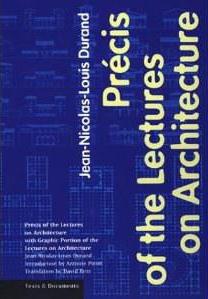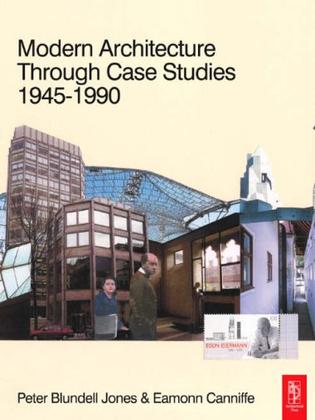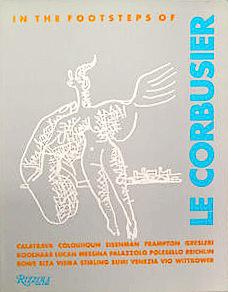-

Precis of the Lectures on Architecture
Jean-Nicolas-Louis Durand Durand (1760-1834) regarded the Précis of the Lectures on Architecture (1802-5) and its companion volume, the Graphic Portion (1821), as both a basic course for future civil engineers and a treatise. Focusing the practice of architecture on utilitarian and economic values, he assailed the rationale behind classical architectural training: beauty, proportionality, and symbolism. His formal systematization of plans, elevations, and sections transformed architectural design into a selective modular typology in which symmetry and simple geometrical forms prevailed. His emphasis on pragmatic values, to the exclusion of metaphysical concerns, represented architecture as a closed system that subjected its own formal language to logical processes. Now published in English for the first time, the Précis and the Graphic Portion are classics of architectural education. -

Modern Architecture Through Case Studies 1945 to 1990
Once again, new interpretations are presented of some of the most famous architecture of the period. Work by lesser-known architects, whose influence and role have been overlooked by conventional histories of the subject, is discussed. The case study structure allows each example to be discussed and used as a springboard to explore different theoretical approaches. Filled with beautiful photographs, plans and architect's drawings, this is a clear and accessible discussion on a period of architecture that engages many questions still under debate in architecture today. The second instalment of this unique commentary on modern architecture provides the reader with a fresh approach to the analysis of post-war architecture. Beautifully illustrated case studies provide an accessible and inspiring source of information. -

The Savage Mind (Nature of Human Society)
"Every word, like a sacred object, has its place. No "precis" is possible. This extraordinary book must be read."--Edmund Carpenter, "New York Times Book Review " "No outline is possible; I can only say that reading this book is a most exciting intellectual exercise in which dialectic, wit, and imagination combine to stimulate and provoke at every page."--Edmund Leach, "Man " "Levi-Strauss's books are tough: very scholarly, very dense, very rapid in argument. But once you have mastered him, human history can never be the same, nor indeed can one's view of contemporary society. And his latest book, "The Savage Mind," is his most comprehensive and certainly his most profound. Everyone interested in the history of ideas "must" read it; everyone interested in human institutions "should "read it."--J. H. Plumb, "Saturday Review" "A constantly stimulating, informative and suggestive intellectual challenge."--Geoffrey Gorer, "The Observer," London -

In The Footsteps of le Corbusier
西扎讲的是:重访萨沃依; 埃森曼的话题是:现代主义的一面:多米诺住宅与自我援引的符号。 库哈斯讲的是:光明之城。。。。。